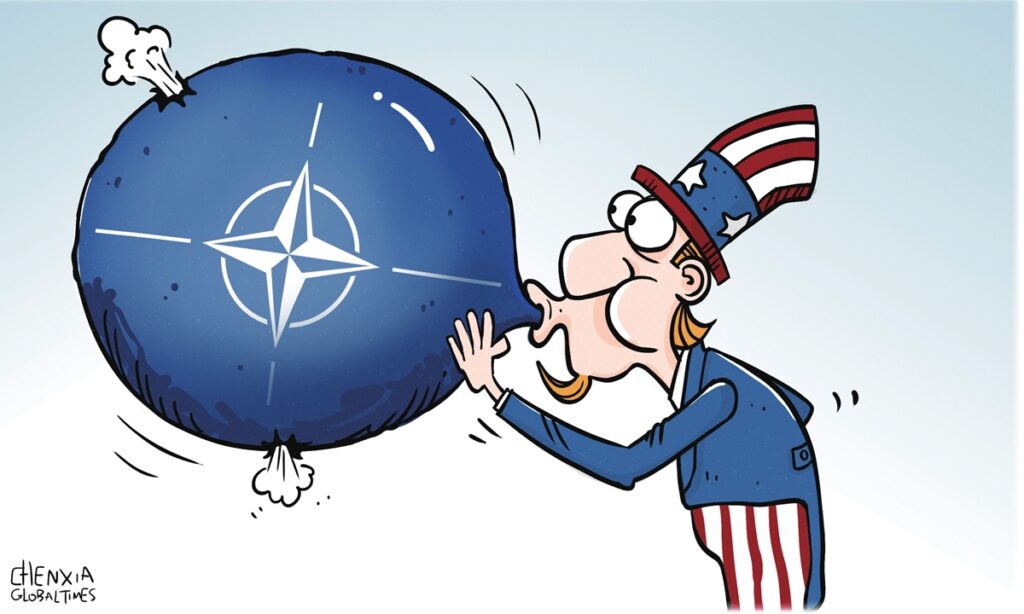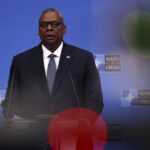Dragging South Korea deeper into the abyss of providing aid to Ukraine, NATO is testing how closely Seoul is willing to tie itself to the Washington-led military alliance. Its ultimate goal is to extend its tentacles even further into Asia-Pacific through its partners in the region.
During his visit to South Korea, NATO Secretary General Jens Stoltenberg on Monday called on South Korea to strengthen its military assistance to Ukraine and even consider allowing direct arms exports.
Against the backdrop of the ongoing conflict between Russia and Ukraine, NATO is trying to persuade its members and partners to form a bigger camp that supports Kiev politically and militarily. In this process, it will be necessary for these countries to provide whatever helps as much as possible. Therefore, according to this logic, since South Korea has a relatively advanced and productive defense industry, the country needs to export more weapons to Ukraine.
Among the countries that have supplied weapons to Kiev, Seoul has performed a very limited function, providing arms of relatively small quantities and low levels. But for NATO, it does not matter what kind of weapons South Korea has offered or plans to offer; what is more important is if Seoul will show the gesture of agreeing to enhance the assistance. In other words, Stoltenberg’s urge comes more likely from a political perspective than military needs.
NATO seeks to transform itself from a regional organization into a global one. Under this goal, one of its grips is to bring the US allies in the East closer. As a result, with all its strength, NATO has been working on its two main pivots in the Asia-Pacific region – Japan and South Korea.
Under Washington’s instigation, NATO is trying to extend its tentacles more deeply into the region and get more regional countries involved in the Russia-Ukraine conflict to share US risks in international politics. Shaping a local conflict in Europe into a global problem serves only the US Indo-Pacific Strategy.
For the NATO Secretary General, the immediate goal of urging Seoul to change its policy is to form a more solid Western alliance to aid Ukraine in this ongoing conflict. But in terms of medium- and long-term strategic objectives, he wants Seoul to tie to the NATO chariot more tightly. In this way, the organization will be able to use South Korea as an entry point into Asia-Pacific affairs more easily.
Therefore, in the eyes of the US, if South Korea is involved in a European military conflict, then it is suitable for NATO to interfere in the possible disputes and conflicts in East Asia, especially under the guise of a just international organization.
Experts believe that South Korea, for its own sake, may not be able to resist NATO’s pressure. For one, cooperation with NATO will help Seoul strengthen its global presence. On the other hand, since South Korean President Yoon Suk-yeol has set the goal of pushing his country to become the world’s fourth-largest arms exporter by 2027, it is difficult for South Korea – driven by economic interests – to continue moving cautiously and slowly on selling more weapons.
To persuade South Korea better, Stoltenberg even used the example of how several NATO allies who had as a policy never to export weapons to countries in conflict have changed that policy. But what we actually see here is how these countries have finally shown their true colors under the mask of hypocrisy, becoming fully subject to Washington’s strategies and policies.
The dangerous step these countries made can easily pull the entire Europe to the brink of conflict. As a result, it is afraid that such an action will prolong the Russia-Ukraine conflict, intensify the tension between NATO countries and Russia and complicate the situation in Europe.
The West always talks about “rules-based order,” but if the rules can be changed so easily just because of the US-led West’s strategic interests, there is no way to talk about an order. It will not only impact the current situation, but also pose a severe and long-term challenge to the entire system of rules in international relations.
(Global Times)




